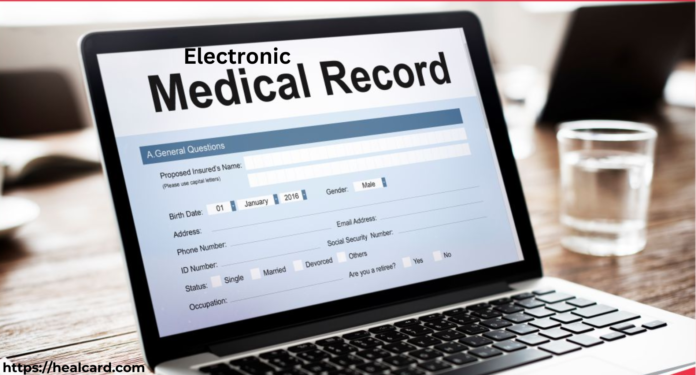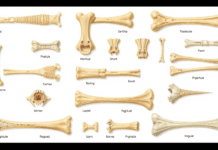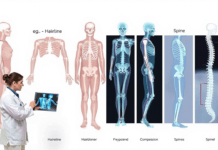In the fastest-evolving healthcare landscape, many new technologies have come into effect and promoted the way people receive healthcare. One such transformative milestone in the medical industry is the adoption of Electronic Medical Records (EMR).
It is a digital platform centralizing and managing the patient health information within the healthcare practice. It is designed with the purpose of replacing traditional paper charts. It offers a comprehensive and easily accessible view of the patient’s medical history, such as treatment, medications, and lab results.
Importance of Electronic Medical Records in the healthcare industry
Managing medical records has been a great challenge for healthcare providers. Inputting and organizing the paper records is a time-consuming and troublesome task. Shifting towards paperless recordkeeping is a great boon to this domain. Apart from simplifying the entire process, it helps keep the records of all patients and retrieve the data whenever required easily.
Already, many practices have moved away from traditional paper recordkeeping, and EMR systems become the newest and most reliable standard. It also renders the streamlined and effective management of patients’ charts, improved accessibility to patient data, and accuracy in documentation.
EMR system is not only advantageous for medical practices but also for patients in several ways. For example, some EMRs provide patients with immediate access to their medical data via secure online portals. It allows the patients to know about their treatment, lab reports and medications easily.
This system plays a major role in medication management. Proper tracking of prescriptions and patient histories helps reduce errors and prevents adverse drug interactions. As a result, the patient will get the correct treatment.
Another great thing about the EMR system is the integration with billing and coding software. This reliable integration streamlines the complex task of medical billing and minimizes errors. Besides, it processes the claims efficiently. All these elements make EMR systems a milestone of modern medical practices.
Major uses of EMR systems
Major times, medical professionals are confused with EMR and EHR systems. Usually, an EMR system is utilized within the organization, whereas EHR systems work across healthcare organizations. Look at below to know the major uses of EMR systems that help understand its importance and differences with EHR systems.
- Majorly used by healthcare providers for diagnosis and treatment
- Helps healthcare providers prescribe medications and ensure that the patient receives the correct treatment
- In-built integration with coding and billing software makes it easier to access medical bills
- Allows healthcare providers to create, store, and receive the patient’s charts
- Gives room for the doctors to record clinical information specific to every facility
Different types of EMR systems
Electronic Medical Record systems have been used in various settings and operating systems. Here are the major types of EMR systems that can be used according to your medical practice and environment.
- On-site EMR systems
The on-site EMR system is installed and runs on servers located within the medical practice. It renders full control over the data and infrastructure supporting the system. This kind of control is beneficial for larger practices with enough IT resources.
It gives space for customization and direct management of data security. But, it comes with higher upfront costs, including ongoing maintenance. Additionally, it needs more time to implement than cloud-based systems.
- Hybrid EMR systems
A hybrid EMR system combines all the elements of on-site and cloud-based systems. It renders a balance of convenience and control. In the hybrid system setup, critical patient data is stored on-site for added security, while less security data is managed in the cloud. This flexible approach offers the best of both systems.
The hybrid system is more useful for practices requiring to maintain some control over their data. At the same time, it also gives the benefits of cost-effectiveness and scalability of cloud solutions.
- Specialty-specific EMR systems
Specialty-specific EMR system is the best choice for practices specialized in a particular area of medicine, such as dermatology and cardiology. These systems are tailored to the specific needs of various medical specialties and render features and templates suitable for that field.
For instance, you can get EMR systems designed especially for psychologists, therapists, and other mental health professionals. These systems have specialized features catering to the requirements of mental health experts, including patient engagement.
- Cloud-based EMR systems
Cloud-based software renders the ability to access the vital data and information remotely. Due to lower upfront costs and flexibility, this EMR system is growing in popularity. It eliminates the need for physical availability at the office to look at and retrieve files.
Usually, the servers used to store the patient information are maintained off-premise by the concerned software company. So, you no longer worry about maintaining infrastructure or servers. It is also less expensive compared to on-premise systems.
In addition, it gives enough flexibility in accessing the information whenever required. It also comes with automatic backups and updates that keep your data safe.
Potential benefits of using the EMR system
Whether you are a large or small healthcare facility, the use of an EMR system gives you the following benefits.
- One of the major benefits of using the EMR system is the increase in efficiency. It puts an end to the time-consuming task of dealing with endless paper files. With the EMR system, patient information is now available at the fingertips. It also gives you quick access, update and share records. By streamlining administrative tasks, the system frees up valuable time that can spent well on patient care.
- Healthcare providers get access to comprehensive patient records through this system. With real-time access to patient data, healthcare providers get better insight about the patient’s health and make informed decisions about the patient’s treatment plan. It makes all the data, such as medications, lab results, and diagnoses in one place, and thus, it avoids risks of errors and enhances the quality of care offered.
- EMR system facilitates better coordination and communication among healthcare providers. Usually, different specialists are involved in the patient’s care, and thus, seamless information is vital. This system makes it easier to transfer patient records between providers. It ensures everyone involved has the same updated information, which leads to more coordinated care and the best outcomes for patients.
- Although the initial investment in adopting the EMR system looks higher, the long-term cost savings are substantial. It reduces the requirement for physical storage space and minimizes paper and printing costs. Besides, it enhances billing accuracy and lowers overall operational expenses.
You can also experience about healcard Hospital Management Software and Clinic Management Software and click for schedule a demo for Management Software.





